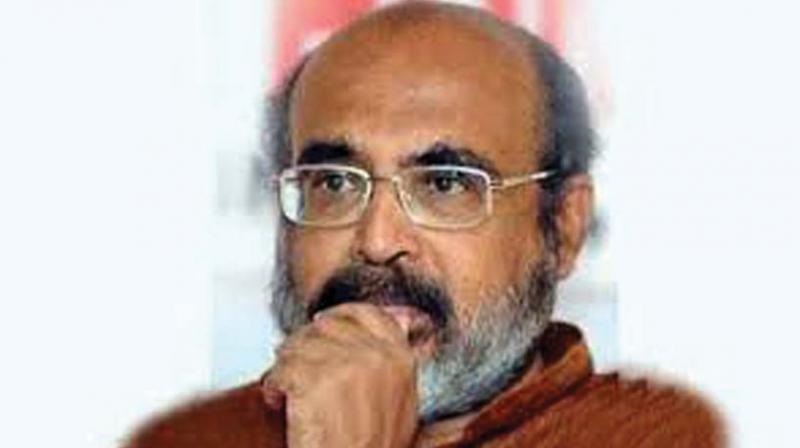Finance minister Thomas Isaac banks on KIIF-B for revenues
KIIF-B will put out RBI- and SEBI-approved instruments, land bonds and chitties, or even take loans to mobile funds.

THIRUVANANTHAPURAM: Finance minister T.M. Thomas Isaac has envisaged Kerala Infrastructure Investment Fund Board (KIIF-B), unveiled in his 2016-17 ‘alteration memorandum’, as the one-stop-shop for the state’s infrastructure needs. Dr Isaac has depended solely on KIIF-B for the state’s basic infrastructure needs, from modernisation of abattoirs and construction of septage units to building schools, setting up dialysis units, laying roads and fibre optic network.
The projects approved by KIIF-B this fiscal (Rs 15,000 crore), which will kick-off only from 2017-18, and the ones that will be sanctioned during 2017-18 (Rs 20,000 crore), together will lead to an investment of Rs 35,000 crore in the state during 2017-18. KIIF-B will put out RBI- and SEBI-approved instruments, land bonds and chitties, or even take loans to mobile funds.
A KIIF-B Director Board has already been constituted. A Fund Trustee Advisory Commission (FTAC), headed by none other than former CAG Vinod Rai, was formed to ensure that all investments of the fund are as per approved scheme and that there is no diversion of funds. Dr Isaac argues the Centre’s fanatic limits on borrowing have forced him to resort to off-budget borrowing mechanisms. However, experts feel that KIIF-B investments can be made viable only if the revenue deficit is brought down to one per cent or below.
In other words, KIIF-B will work only in a situation where almost all of the state’s routine expenditure is met by its revenues (which includes tax, non tax and transfers from the Centre). The thinking is, once revenue deficit is almost zero, its borrowings can be used fully for development purposes and to pay back KIIF-B’s costs. For 2017-18, the revenue deficit is an unsustainable 2.14 percent. What can be alarming is the government’s own estimate that revenue deficit will not fall below 1.5 percent even by 2020.

